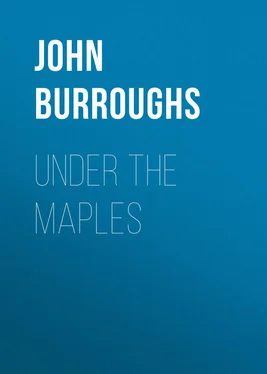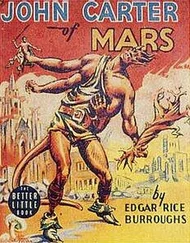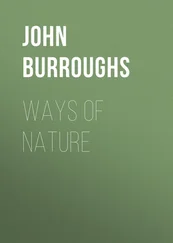John Burroughs - Under the Maples
Здесь есть возможность читать онлайн «John Burroughs - Under the Maples» — ознакомительный отрывок электронной книги совершенно бесплатно, а после прочтения отрывка купить полную версию. В некоторых случаях можно слушать аудио, скачать через торрент в формате fb2 и присутствует краткое содержание. Жанр: foreign_antique, foreign_prose, Историческая проза, на английском языке. Описание произведения, (предисловие) а так же отзывы посетителей доступны на портале библиотеки ЛибКат.
- Название:Under the Maples
- Автор:
- Жанр:
- Год:неизвестен
- ISBN:нет данных
- Рейтинг книги:4 / 5. Голосов: 1
-
Избранное:Добавить в избранное
- Отзывы:
-
Ваша оценка:
- 80
- 1
- 2
- 3
- 4
- 5
Under the Maples: краткое содержание, описание и аннотация
Предлагаем к чтению аннотацию, описание, краткое содержание или предисловие (зависит от того, что написал сам автор книги «Under the Maples»). Если вы не нашли необходимую информацию о книге — напишите в комментариях, мы постараемся отыскать её.
Under the Maples — читать онлайн ознакомительный отрывок
Ниже представлен текст книги, разбитый по страницам. Система сохранения места последней прочитанной страницы, позволяет с удобством читать онлайн бесплатно книгу «Under the Maples», без необходимости каждый раз заново искать на чём Вы остановились. Поставьте закладку, и сможете в любой момент перейти на страницу, на которой закончили чтение.
Интервал:
Закладка:
The insects are much more sensitive to heat and cold than we are, and for reasons. The number of waves in the ether that gives us the sensation of heat is three or four million millions a second. The number of tremors required to produce red light is estimated at four hundred and seventy-four million millions a second, and for the production of violet light, six hundred and ninety-nine million millions a second. No doubt the insects react to all these different degrees of vibration. Those marvelous instruments called antennæ seem to put them in touch with a world of which we are quite oblivious.
To how many things our lives have been compared! – to a voyage, with its storms and adverse currents and safe haven at last; to a day with its morning, noon, and night; to the seasons with their spring, summer, autumn, and winter; to a game, a school, a battle.
In one of his addresses to workingmen Huxley compared life to a game of chess. We must learn the names and the values and the moves of each piece, and all the rules of the game if we hope to play it successfully. The chessboard is the world, the pieces are the phenomena of the universe, the rules of the game are what we call the laws of nature. But it may be questioned if the comparison is a happy one. Life is not a game in this sense, a diversion, an aside, or a contest for victory over an opponent, except in isolated episodes now and then. Mastery of chess will not help in the mastery of life. Life is a day's work, a struggle where the forces to be used and the forces to be overcome are much more vague and varied and intangible than are those of the chessboard. Life is coöperation with other lives. We win when we help others to win. I suppose business is more often like a game than is life – your gain is often the other man's loss, and you deliberately aim to outwit your rivals and competitors. But in a sane, normal life there is little that suggests a game of any kind.
We must all have money, or its equivalent. There are the three things – money, goods, labor – and the greatest of these is labor. Labor is the sum of all values. The value of things is the labor it requires to produce or to obtain them. Were gold plentiful and silver scarce, the latter would be the more precious. The men at the plough and the hoe and in the mines of coal and iron stand first. These men win from nature what we all must have, and these things are none of them in the hands or under the guardianship of some one who is trying to keep us from obtaining them, or is aiming to take our aids and resources from us.
The chess simile has only a rhetorical value. The London workingmen to whom Huxley spoke would look around them in vain to find in their problems of life anything akin to a game of chess, or for any fruitful suggestion in the idea. They were probably mechanics, tradesmen, artisans, teamsters, boatmen, painters, and so on, and knew through experience the forces with which they had to deal. But how many persons who succeed in life have any such expert knowledge of the forces and conditions with which they have to deal, as two chess-players have of the pawns and knights and bishops and queens of the chessboard?
Huxley was nearly always impressive and convincing, and there was vastly more logical force in his figures than in those of most writers.
Life may more truly be compared to a river that has its source in a mountain or hillside spring, with its pure and sparking or foaming and noisy youth, then its quieter and stronger and larger volume, and then its placid and gently moving current to the sea. Blessed is the life that is self-purifying, like the moving waters; that lends itself to many noble uses, never breaking out of bonds and becoming a destructive force.
I had a letter the other day from a man who wanted to know why the meadow, or field, mice gnawed or barked the apple-trees when there was a deep coverlid of snow upon the ground. Was it because they found it difficult to get up through the deep, frozen snow to the surface to get seeds to eat? He did not seem to know that meadow mice are not seed-eaters, but that they live on grass and roots and keep well hidden beneath the ground during the day, when there is a deep fall of snow coming up out of their dens and retreats and leading a free holiday life beneath the snow, free from the danger of cats, foxes, owls, and hawks. Life then becomes a sort of picnic. They build new nests on the surface of the ground and form new runways, and disport themselves apparently in a festive mood. The snow is their protection. They bark the trees and take their time. When the snow is gone, their winter picnic is at an end, and they retreat to their dens in the ground and beneath flat stones, and lead once more the life of fear.
Sitting on my porch recently, wrapped in my blanket, recovering from a slight indisposition, I was in a mood to be interested in the everyday aspects of nature before me – in the white and purple lilacs, in the maple-leaves nearly full grown, in the pendent fringe of the yellowish-white bloom of the chestnut and oak, in the new shoots of the grapevines, and so forth. All these things formed only a setting or background for the wild life near by.
The birds are the little people that peep out at me, or pause and regard me curiously in this great temple of trees, – wrens, chippies, robins, bluebirds, catbirds, redstarts, and now and then rarer visitants. A few days earlier, for a moment, a mourning ground warbler suddenly appeared around the corner, on the ground, at the foot of the steps, and glanced hastily up at me. When I arose and looked over the railing, it had gone. Then the speckled Canada warbler came in the lilac bushes and syringa branches and gave me several good views. The bay-breasted warbler was reported in the evergreens up by the stone house, but he failed to report to me here at "The Nest." The female redstart, however, came several times to the gravel walk below me, evidently looking for material to begin her nest. And the wren, the irrepressible house wren, was and is in evidence every few minutes, busy carrying nesting-material into the box on the corner of the veranda. How intense and emphatic she is! And the male, how he throbs and palpitates with song! Yesterday an interloper appeared. He or she climbed the post by the back way, as it were, and hopped out upon the top of the box and paused, as if to see that the coast was clear. He acted as if he felt himself an intruder. Quick as a flash there was a brown streak from the branch of a maple thirty feet away, and the owner of the box was after him. The culprit did not stop to argue the case, but was off, hotly pursued. I must not forget the pair of wood thrushes that are building a nest in a maple fifty or more feet away. How I love to see them on the ground at my feet, every motion and gesture like music to the eye! The head and neck of the male fairly glows, and there is something fine and manly about his speckled breast.
A pair of catbirds have a nest in the barberry bushes at the south end of the house, and are in evidence at all hours. But when the nest is completed, and the laying of eggs begins, they keep out of the public eye as much as possible. From the front of the stage they retreat behind the curtain.
One day as I sat here I heard the song of the olive-backed thrush down in the currant-bushes below me. Instantly I was transported to the deep woods and the trout brooks of my native Catskills. I heard the murmuring water and felt the woodsy coolness of those retreats – such magic hath associative memories! A moment before a yellow-throated vireo sang briefly in the maple, a harsh note; and the oriole with its insistent call added to the disquieting sounds. I have no use for the oriole. He has not one musical note, and in grape time his bill is red, or purple, with the blood of our grapes.
Читать дальшеИнтервал:
Закладка:
Похожие книги на «Under the Maples»
Представляем Вашему вниманию похожие книги на «Under the Maples» списком для выбора. Мы отобрали схожую по названию и смыслу литературу в надежде предоставить читателям больше вариантов отыскать новые, интересные, ещё непрочитанные произведения.
Обсуждение, отзывы о книге «Under the Maples» и просто собственные мнения читателей. Оставьте ваши комментарии, напишите, что Вы думаете о произведении, его смысле или главных героях. Укажите что конкретно понравилось, а что нет, и почему Вы так считаете.











